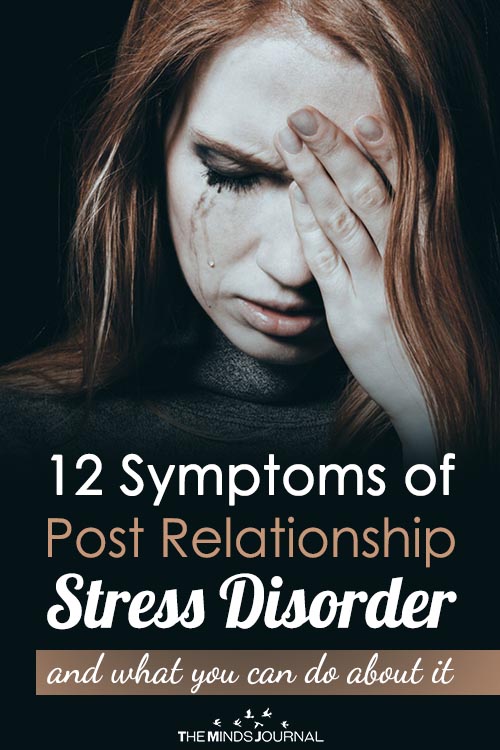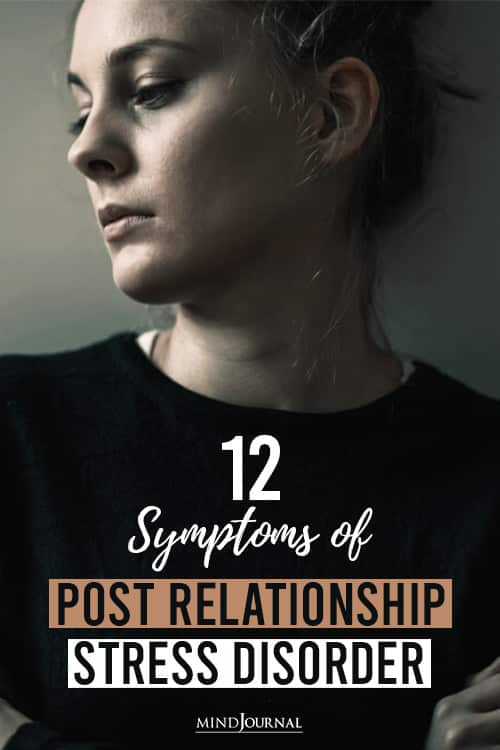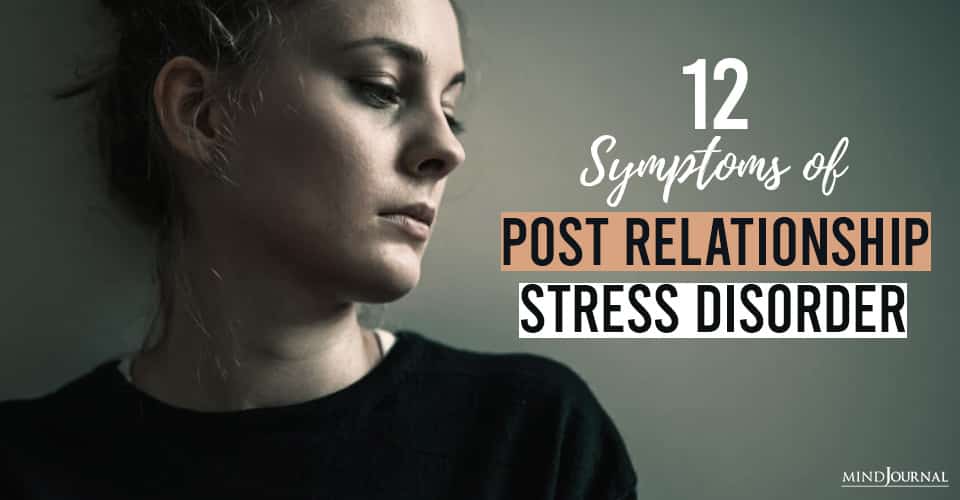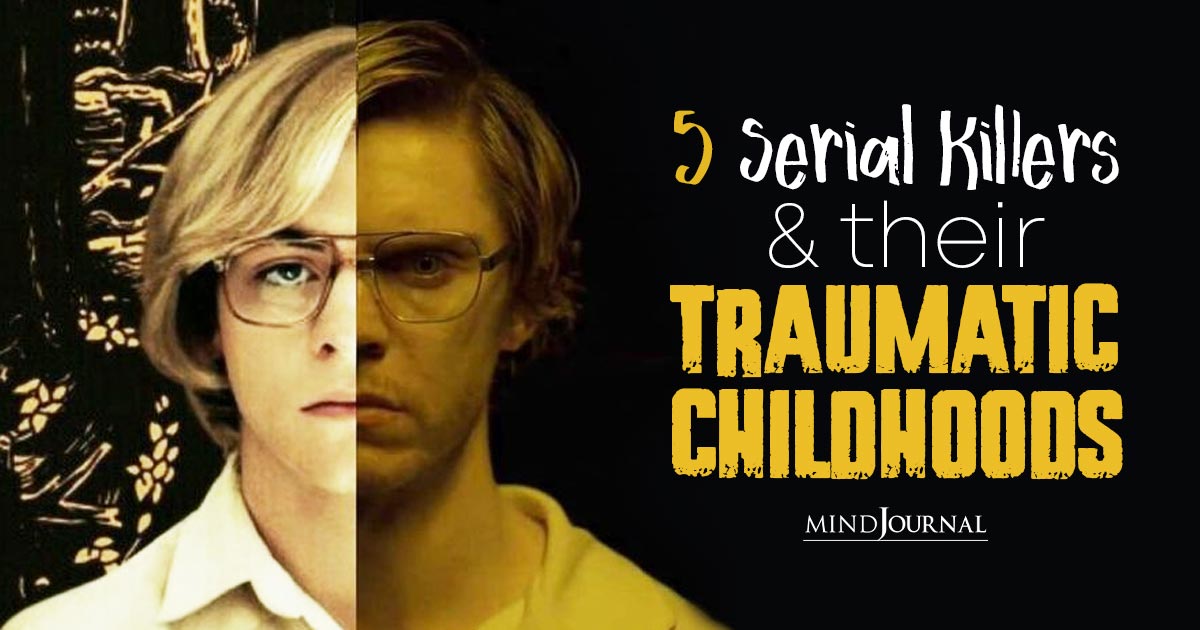Post Relationship Stress Disorder is something that is extremely hard to deal with, and the trauma that it brings with it can be extremely debilitating, both mentally and psychologically.
Man is a social animal. From birth till death, we enter into different relationships. Some relationships are nurturing and nourish us while some may turn out to be abusive or destructive.
If we face sexual, physical, or emotional abuse (abandonment, rejection, or victimization) in our intimate relationships, it can have long term debilitating effects on our lives.
In psychological terms, the trauma that is caused by physical, sexual, or emotional abuse within an intimate relationship setting is referred to as Post-Traumatic Relationship Syndrome (PTRS).
Here are 12 signs that indicate that a person might be suffering from Post Relationship Stress Disorder or Post-Traumatic Relationship Syndrome and what to do about it:
1) Changes in response and coping mechanism.
Generally, a person has a wide range of coping mechanisms at his disposal and he utilizes them optimally by choosing the appropriate response from the entire range of options in a calm and relaxed state of mind.
But, if a person is suffering from trauma, then the range of coping mechanisms available to him are very restricted. He is not able to access the calm state of mind and choose a situation appropriate response from a wide range of coping mechanisms. His response and coping mechanisms mostly involve fear, terror, panic, horror, and rage.
2) Flashback and nightmares.
If a person has gone through extreme relationship stress or undergone abuse in any form: physical, mental, or emotional in intimate relationships, then it can have a long range effect on an individual’s psyche.
A person can start having flashbacks, hallucinations and vivid memories of the events that triggered trauma as if they are reliving it.
They can also start having nightmares of their partner yelling at them, cheating on them, betraying or abandoning them.
It can make a person extremely scared, vulnerable and hopeless because the haunting memories do not seem to leave them.
Related: How Mindfulness Meditation For Panic Disorder Can Help You
3) Anxiety, panic attacks, and obsessive thoughts.
If you have suffered from abuse in your intimate relationships, it can shake your entire world view.
Post Relationship Stress Disorder can shake your foundational beliefs like:
This world is a benign place or good things happen to good people or one is well equipped to handle crisis situations.
The mistrust and fear can give rise to persistent anxiety and panic attacks and a constant underlying feeling of living on the edge.
Sometimes people who have suffered from traumatic relationships also get caught in the loop of obsessive thoughts. They keep on wondering “What was their fault?”, “What could they have done better?” and take a lot of time to come to terms and accept the situation and let go of the obsessive self-critical thoughts.
4) Feeling of suspicion and distrust.
We are mostly off guard in our intimate relationships because we trust the other person to take care of our well being. But if we are abused by the same person whom we trusted wholeheartedly, it breaks our foundation of trust.
The survivors of PTRS tend to get into a hyper-vigilance mode. They always have their guard up and become full of suspicion. They feel like the world is out there to get them and find it difficult to trust people easily.
5) Sleep disturbances.
If your mind and heart are not at peace, it is almost impossible to get a good night’s sleep.
The pain and anxiety can manifest more profusely at night in the form of nightmares, flashbacks, night sweats. It can seriously hamper the sleep cycle of an individual and result in acute insomnia.
6) Persistent feelings of rage and anger.
The feelings of pain and hurt can lead to extreme bitterness, rage, and anger in an individual towards the perpetrator of trauma. It also impacts their ability to see the brighter side of life and they may start hating even those things which they previously enjoyed.
7) Restlessness and listlessness.
Depression and pain can manifest in two ways, it can either lead to extreme restlessness on one hand and listlessness on the other hand.
People who have suffered from PTRS can either become extremely sad or mourn a lot on one hand or emotionally numb on other hand. They can just shut down and check out emotionally in order to protect themselves from any further pain.
8) Extreme weight loss or gain.
Extreme weight loss or gain is a sign that your body is undergoing trauma.
When you are in an abusive relationship, it feels like you are walking on eggshells and it activates the fight or flight response in your body. It in turn affects your energy and immune system and results in extreme weight loss or gain.
Related: 4 Steps That Help You Bid Goodbye To Depression
9) Not feeling safe or secure in the world.
Traumatic stressors in an intimate relationship challenge a person’s very foundational belief system and knowledge of self/world. They are not able to trust that the world is a safe place and people are kind in general.
They also start questioning their own self as to how they could not recognize the abuser’s intentions earlier and start doubting their ability to judge a person accurately.
They also lose confidence in their ability to deal with crisis situations because they extrapolate their response in this traumatic situation to mean that, this is how they are always going to respond to crisis situations.
To get out of this cycle of painful belief systems, a person has to slowly and gradually adopt new paradigms and belief systems.
10) Fear of intimate relationships (or a particular type of intimate relationship).
The devastating effects of trauma caused due to stressors in intimate relationships are far more than in other traumatic situations because of the human element involved.
It is because we are attached to the individual and trust them completely and when that trust is broken in an intimate relationship, it can severely impair our ability to trust people in intimate relationships.
It can lead to a lot of physical arousal symptoms like fear and panic and the individual eventually begins to associate these feelings with that particular kind of relationship.
For example, if a person has suffered any kind of abuse in romantic relationships, he may become extremely cautious and fearful of only intimate romantic relationships whereas he can function normally and enjoy other relationships.
Related : 8 Profound Lessons Intimate Relationships Teach Us
11) Sexual promiscuity or complete lack of interest in sexual activities.
Sometimes people who have suffered sexual abuse can turn to sexual promiscuity as a way to regain their power or to numb their pain by indulging in casual sex.
On the other hand, some survivors of sexual abuse can turn totally averse to the idea of sexual intimacy. They may even flinch at the slightest touch as they fear the emotions and pain will resurface if they indulge in sexual activities.
12) Self-blaming, excessive crying, and social isolation.
Post Relationship Stress Disorder can make someone extremely self-critical. They keep on wondering what was their role in the downfall of the relationship or if they could have done anything different to save the relationship.
The extreme pain and hurt can lead to persistent periods of inconsolable crying and mourning. The pain is often accompanied by feelings of shame and guilt and a person goes into a period of social isolation.
Related: Finding Peace After A Toxic Relationship
How to heal from PTRS
The first step to heal from PTRS is to be kind towards your own self. It was not your fault if the person you trusted turned out to be an abuser. You have already gone through immense pain and stress and you deserve every bit of your own love and compassion. Make your healing a priority over everything else.
Seek counseling or any other kind of professional help, take up hobbies that you enjoy, do volunteer work, join support groups, indulge in self-care rituals, or go for a spiritual or meditation retreat. Create healthy boundaries. Learn to say no. Don’t let anyone suck the energy out of your life. Be selfish with your time and energy.
But don’t rush your healing process. Be kind and patient with yourself like you would be with a friend who is undergoing suffering.
It’s ok to not be ok for some time. Do not numb or run away from your emotions, this way you will only trap them in your system. Instead, feel them and let them out.
“You need to be as patient as someone ill and as optimistic as one recuperating, for perhaps you are both. And more: You are also the physician who must watch over yourself. But in the course of every illness, there are many days in which the physician can do nothing but wait. And that, above all, to the extent that you are your own physician, you must do now.” – Rainer Maria Rilke










Leave a Reply
You must be logged in to post a comment.